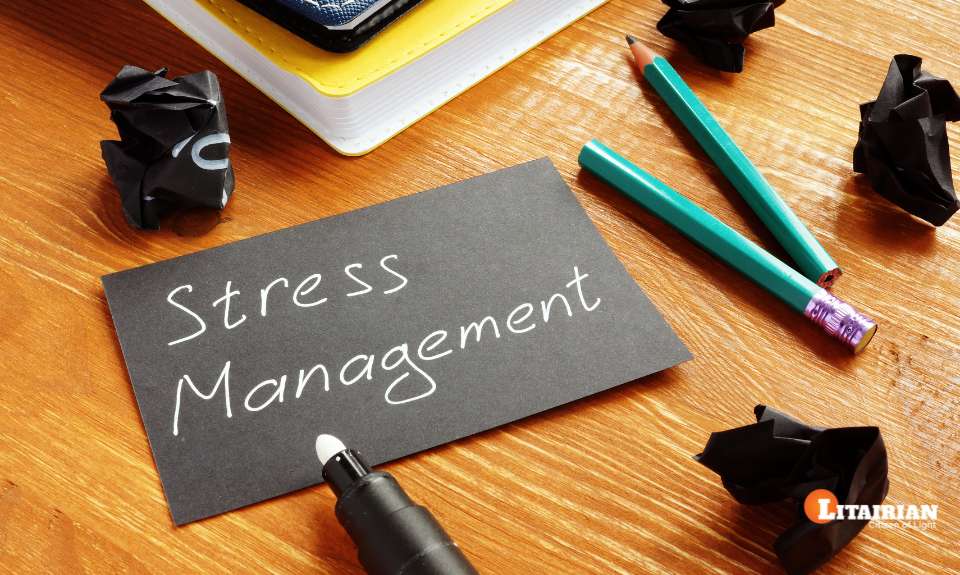
Stress management refers to a set of techniques and strategies aimed at reducing, coping with, or preventing stress. It is a natural reaction to the demands of life, but when it becomes overwhelming or chronic. When a person is under stress then there are negative effects on both physical and mental health. Stress management techniques help individuals to better handle and respond to stressors in their lives. It leads to improved well-being and quality of life.
The Psychological Response
Stress is a physiological and psychological response to events or circumstances that challenge or threaten an individual’s well-being, equilibrium, or resources. It’s a natural reaction that helps humans adapt to their environment and cope with various situations. When faced with a stressor, whether it’s physical, emotional, or environmental, the body activates the “fight or flight” response, triggering a cascade of physiological changes aimed at preparing the individual to either confront the stressor or flee from it.
Stress Hormones
The physiological changes include the release of stress hormones such as cortisol and adrenaline, increased heart rate, heightened alertness, and tensing of muscles. In the short term, this response can be beneficial, helping individuals perform better under pressure or react quickly to danger. However, when stress becomes chronic or overwhelming, it can have detrimental effects on both physical and mental health.
Chronic stress has been linked to a range of health problems, including cardiovascular disease, immune system dysfunction, digestive issues, depression, anxiety disorders, and sleep disturbances. Additionally, prolonged exposure to stress can impair cognitive function, memory, and decision-making abilities.
Negative Talk-Coping With Stress Management
It’s important to note that stress is subjective, meaning what one person finds stressful, another may not. Stressors can be external (such as work deadlines, financial problems, or relationship conflicts) or internal (such as worries, fears, or negative self-talk). Effective stress management involves recognizing stressors, developing coping strategies, and building resilience to better navigate life’s challenges.
Some common stress management techniques include:
- Mindfulness and Meditation: Practices such as mindfulness meditation can help individuals develop awareness of their thoughts, feelings, and bodily sensations, allowing them to respond to stressors more effectively.
- Physical Activity: Regular exercise has been shown to reduce stress levels by releasing endorphins, improving mood, and promoting relaxation.
- Deep Breathing Exercises: Techniques such as deep breathing, diaphragmatic breathing, or progressive muscle relaxation can help calm the body’s stress response and induce a state of relaxation.
- Time Management: Learning to prioritize tasks, set realistic goals, and effectively manage time can reduce feelings of overwhelm and stress.
- Healthy Lifestyle Choices: Eating a balanced diet, getting enough sleep, and avoiding excessive alcohol and caffeine intake can support overall well-being and resilience to stress.
- Social Support: Seeking support from friends, family, or support groups becomes important. It can provide emotional validation and practical assistance in dealing with stressors.
- Setting Boundaries: Learning to say no, setting boundaries, and delegating tasks can help prevent burnout and overwhelm.
- Cognitive Restructuring: Challenging negative thought patterns and replacing them with more adaptive and positive thoughts can help reduce stress levels.
- Seeking Professional Help: In some cases, stress may become overwhelming or chronic. It may require the assistance of a mental health professional such as a therapist or counselor.
Overall, stress management involves a combination of self-awareness, coping skills, and lifestyle adjustments. It is to effectively manage stress and promote overall well-being.
About The Author: Payal Jain
About The Author: Payal Jain
She is a compassionate life coach, counselor, and certified VK teacher, with extensive expertise in cosmic healing techniques and energy work.
Well-versed in the use of Affirmations, Switchwords, Bach Flower Remedies, and Cosmic Serums of Vibbes Kada, she helps individuals align with their highest potential. As a faithful, true, and wholehearted follower of Sharat Sir, she has been profoundly shaped by his guidance and teachings, which have empowered her to master these transformative healing modalities. Sharat Sir regards her not only as a devoted student but also as a cherished member of his family.
As a senior member of the Litairian core committee, she continues to serve with dedication, always striving to share the wisdom imparted by Sharat Sir. In her roles as a Cosmic (VK) Healer, Law of Attraction teacher, and Reiki Master/Healer, she empowers individuals on their journeys of self-discovery and fulfillment. A recipient of the prestigious WOW Personality Award in Mumbai (2016), she is also an accomplished blogger, sharing insights and positivity inspired by Sharat Sir’s teachings.
